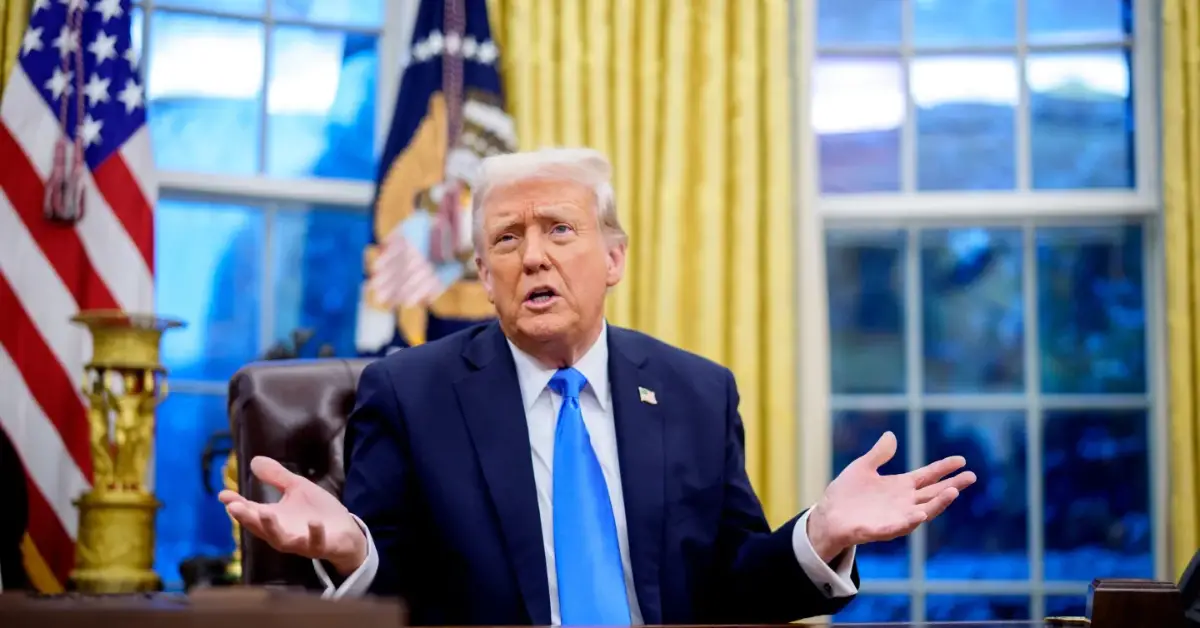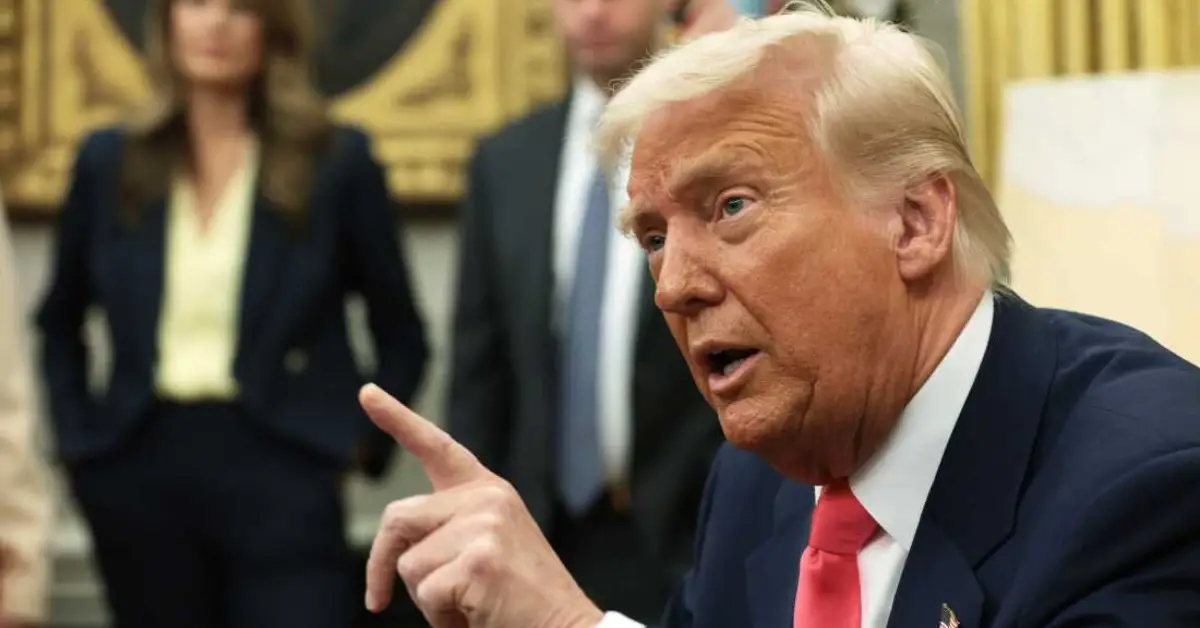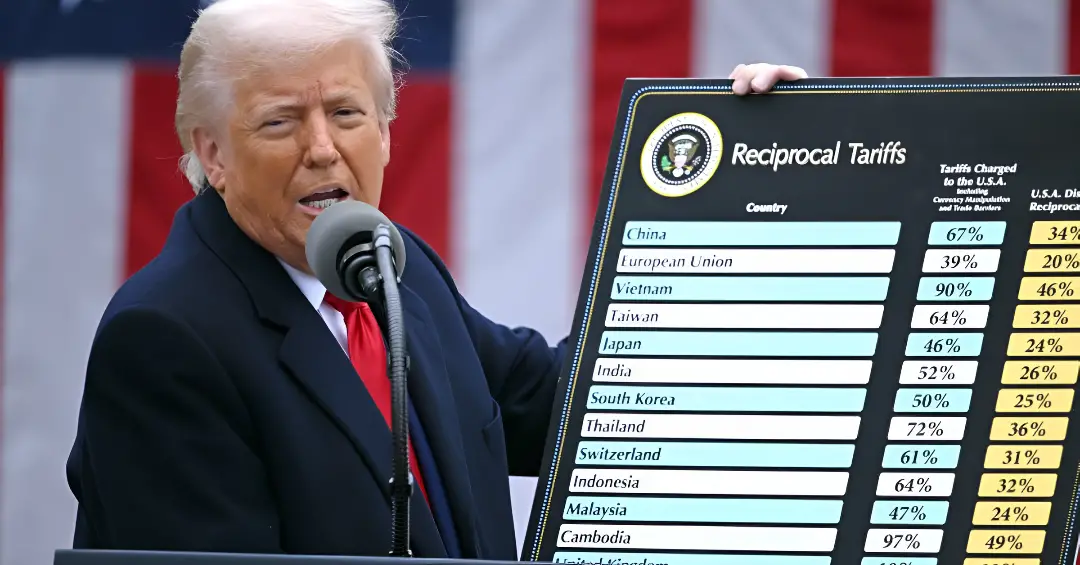The Canadian election of 2025 took a surprising turn when Justin Trudeau, the leader of the ruling Liberal Party, resigned. His resignation led to the rise of Mark Carney, a former head of both the Bank of Canada and the Bank of England.
Carney seemed to be in a prime position to take over as prime minister. However, things changed drastically after President Donald Trump entered the picture. His aggressive rhetoric and public calls for Canada to become the 51st state altered the election dynamics in ways no one had anticipated.
During a White House interview, Trump couldn’t help but boast about the role he played in what had been shaping up to be a crushing defeat for Carney. He claimed that his influence on the election had turned what was expected to be an easy win for Carney into a tight race.
According to Trump, his attacks on Canada had caused enough of a backlash that the once-strong conservative lead in Canada had been whittled down, putting the election in jeopardy. “You know, until I came along, remember that the conservative was leading by 25 points,” Trump said, adding, “Then I was disliked by enough of the Canadians that I’ve thrown the election into a close call, right? I don’t even know if it’s a close call.”
In Canada, voters don’t directly cast ballots for their prime minister. Instead, they vote for candidates within political parties to be elected to parliament. The leader of the party that wins the most seats becomes the prime minister.
Early on in the year, Conservative Party leader Pierre Poilievre was the frontrunner, as Canada had seen a surge in anti-incumbent sentiment. Trudeau and his Liberal Party had held power for nearly a decade, and many voters were looking for change. Poilievre, known for his strong MAGA-style platform, promised tax cuts, ramped up criticism of immigration policies, and engaged in controversial culture war topics, which resonated with many Canadian voters.
However, as soon as Trump took office in January 2025, the Conservative Party’s 25-point lead was slowly but surely erased. Canadian pollster Frank Graves, in his analysis, attributed Trump’s interference as the primary factor in this dramatic shift.
While Poilievre’s campaign initially seemed destined for success, Trump’s vocal support of conservative ideals and his ongoing attacks on Canada created an environment where voters began to shift their support. Many Canadians found themselves increasingly repelled by Trump’s rhetoric, and this played a key role in dampening Poilievre’s momentum.
Trump, who had long made no secret of his desire to annexe Canada and make it the 51st state, didn’t shy away from discussing this vision during the White House interview. He argued that if Canada were to join the United States, it would be able to avoid tariffs and would benefit from a stronger economic partnership. “If Canada were a state, they wouldn’t face tariffs anymore,” Trump explained. “It would be so much better for them.”
This argument struck a chord with Trump’s base, but it also sent ripples of discontent through the Canadian political landscape. While many conservatives in Canada may have agreed with Trump on certain issues, his bold claim that Canada should become part of the U.S. created a backlash that many weren’t prepared for.
The idea that Canada, an independent nation with a long-standing cultural and political identity, would surrender its sovereignty to join the United States was unsettling to many Canadians, and it was no surprise that this rhetoric started to have a negative impact on Poilievre’s chances.

Trump’s comments about Canada’s potential as the 51st state were met with scepticism from many, especially as it became clear that Trump’s words were not just political rhetoric but a genuine desire for U.S.-Canada integration. The conversation took an even more awkward turn when The Atlantic’s Jeffrey Goldberg asked Trump whether he was serious about making Canada a U.S. state. “I think it would be great,” Trump replied enthusiastically.
Goldberg, ever the sceptic, pointed out that Canada, with its large urban centres, would likely lean more Democratic than Conservative, thus creating a very different political landscape for the U.S. Trump tried to dismiss this concern, arguing that Canada had been previously leaning toward the Conservative Party.
“Conservatives didn’t like Trudeau,” he said, referring to the Canadian leader’s tenure. Trump added that if Canada were to join the U.S., it would be better off under his vision of governance, even joking about calling Trudeau “Governor Trudeau” as if he were a U.S. state governor.
This clash of political visions was unfolding on a public stage, and the Canadian electorate was taking notice. The impact of Trump’s statements cannot be overstated, as they highlighted the broader implications of U.S. involvement in Canadian politics.
While it was clear that Trudeau’s departure and Carney’s rise were catalysts for the election, Trump’s antics created an environment in which Canadians were forced to reconsider their options. Was this really the kind of leadership they wanted in their country?
As election day approached, most polls in Canada closed at 9:30 p.m. ET, with results expected to be announced late into the night. Carney was the frontrunner, having secured a strong anti-Trump ticket, a strategy that resonated with many Canadians who were appalled by Trump’s remarks.
In a country where many value their independence and sovereignty, Carney’s promise to lead Canada with a more diplomatic approach seemed more appealing than ever before. If Carney were able to secure a majority, it would give him the power to steer Canada for the next several years, potentially until after the 2028 elections.
Despite the challenges ahead, Carney was seen as the more level-headed and capable leader to address the complex issues facing Canada. He wasn’t focused on undermining U.S.-Canada relations or threatening Canadian sovereignty. Instead, his platform was grounded in economic recovery and promoting policies that would unite Canadians, rather than divide them.
For Trump, the impact of his rhetoric had already been felt in the election, even before the final votes were counted. His role in disrupting the race, while boasting about his influence, revealed a dangerous pattern of foreign interference in a democratic process. While Trump may have had a hand in shaking up Canada’s political scene, the long-term ramifications of his statements could unfold in ways no one expected.
Disclaimer: This article has been meticulously fact-checked by our team to ensure accuracy and uphold transparency. We strive to deliver trustworthy and dependable content to our readers.




